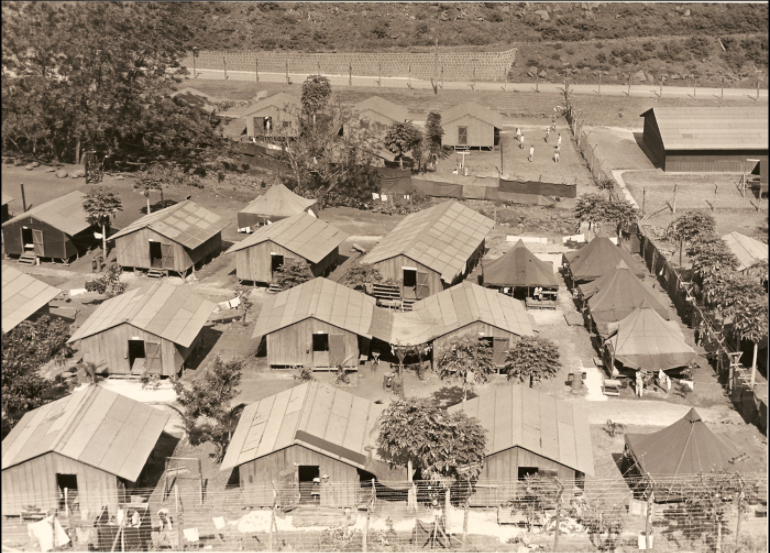Shaping Okinawan Identity and Community in Hawaii During World War II
Monday, May 18, 2020, 5:30–6:30 PM

Kelli Y. Nakamura and Brandon Marc Higa share stories about community building between Okinawan immigrants and Okinawan prisoners of war in Hawaii. They discuss assimilation policies enforced during Japan’s Meiji Restoration Era (1868-1912) to contextualize Okinawan people’s treatment as a minority within a minority. Our guest speakers also shed light on the experiences faced by Okinawan prisoners of war at Honouliuli incarceration camp, the largest and longest running detention site during WWII. Yuimaaru, a term meaning “mutual assistance and cooperation,” is explored throughout the presentation as a custom that emerged to unify and strengthen Okinawan identity and community throughout the war. Yuimaaru continues to characterize Okinawan relationships in Japan and Hawaii today.
This program is adapted from the presenters’ recently published article in the University of California, Los Angeles’ Amerasia Journal titled, “Yuimaaru: Okinawan Prisoners of War Shape Okinawan Identity & Transnational Connections.”
Presenters
Kelli Y. Nakamura is an Assistant Professor at Kapiʻolani Community College and teaches History and Ethnic Studies. Her research interests include Japanese and Japanese American history.
Brandon Marc Higa is a licensed attorney with a JD from the William S. Richardson School of Law at the University of Hawaiʻi at Mānoa, and BA and MA degrees in international relations from the University of Southern California. Higa received the National Security Education Program David L. Boren Graduate Fellowship and Freeman – ASIA Award to conduct post-graduate research on the U.S. military base presence in Okinawa Prefecture. Higa is currently pursuing a doctorate in law (SJD) at the William S. Richardson School of Law.
